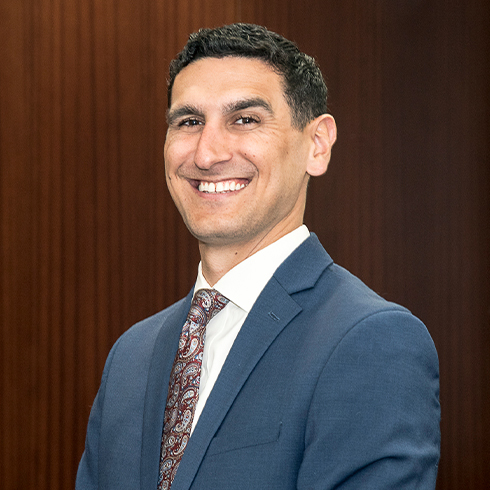Understanding the distinctions between medical malpractice and medical negligence is crucial for anyone navigating the complexities of medical injury claims. While these terms are often used interchangeably, they represent different concepts within the realm of medical law. Clarifying these differences not only aids in comprehending the legal processes involved but also in determining the appropriate course of action when faced with potential medical errors. Alpert Schreyer Injury Accident Lawyers, a law firm committed to advocating for victims of medical wrongdoing, provides insight into the nuances of these two legal concepts.
Defining Medical Negligence
Medical negligence occurs when a healthcare professional fails to provide the standard of care expected in their field, resulting in harm to the patient. This concept hinges on the idea of a breach of duty. In simpler terms, negligence is an error or omission that a competent healthcare provider would not have made under similar circumstances. It is important to note that negligence does not always equate to intentional harm or wrongdoing. Instead, it signifies a lapse in the expected level of care due to oversight, mistakes, or lack of attention to detail.
An example of medical negligence might include a situation where a nurse administers the wrong medication to a patient because they did not thoroughly check the prescription. The nurse did not intend to harm the patient, but their failure to follow proper procedures resulted in an error. Similarly, a surgeon who operates on the wrong part of the body due to a miscommunication in the operating room is guilty of negligence.
Understanding Medical Malpractice
Medical malpractice, on the other hand, is a broader and more severe term that encompasses negligence but also includes instances of intentional misconduct or egregious errors. Malpractice occurs when a healthcare professional not only fails to meet the standard of care but does so in a manner that demonstrates a disregard for the patient’s well-being. This breach of duty must directly result in injury or harm to the patient. Malpractice can be thought of as an aggravated form of negligence where the healthcare provider’s actions or inactions are so reckless that they deviate significantly from the accepted medical standards.
For instance, a doctor who performs a surgical procedure while under the influence of alcohol would be committing malpractice. Their conscious decision to operate despite being impaired constitutes a blatant disregard for patient safety. Similarly, a healthcare provider who knowingly uses unsterilized equipment, leading to an infection, demonstrates a level of recklessness that goes beyond mere negligence. Malpractice cases often involve more serious consequences and thus require a higher burden of proof to establish the healthcare provider’s fault.
Legal Implications and Standards of Proof
The legal ramifications of medical negligence and malpractice differ significantly, particularly in terms of the burden of proof required to establish a claim. In cases of medical negligence, the plaintiff must demonstrate that the healthcare provider’s actions fell below the standard of care expected in their profession. This involves showing that a reasonable medical professional in a similar situation would have acted differently, thereby avoiding the harm caused.
In contrast, medical malpractice claims necessitate proving that the provider’s conduct was not just below standard but was grossly negligent or intentionally harmful. The plaintiff must establish that the healthcare provider’s actions directly caused the injury and that the harm would not have occurred if the provider had adhered to the standard of care. This often requires extensive evidence, including testimony, medical records, and a clear demonstration of the provider’s deviation from accepted medical practices.
The distinction in the standards of proof underscores the importance of thorough documentation and analysis in medical malpractice cases. Plaintiffs must be prepared to present compelling evidence that clearly links the provider’s misconduct to the resulting injury. This can be a challenging task, necessitating the experience of legal professionals experienced in handling complex medical cases.
Compensation and Damages
Both medical negligence and malpractice can result in significant financial and emotional repercussions for the affected individuals. However, the compensation awarded in these cases can vary based on the severity and nature of the harm caused. Victims of medical negligence may be entitled to compensation for medical expenses, lost wages, and pain and suffering. The goal is to restore the victim to the position they would have been in had the negligence not occurred.
In cases of medical malpractice, the damages awarded can be substantially higher due to the more serious nature of the misconduct. In addition to compensatory damages, victims may also be eligible for punitive damages, which are intended to punish the healthcare provider for their reckless or intentional behavior. These damages serve as a deterrent to prevent similar conduct in the future and underscore the gravity of the provider’s actions.
It is important for victims to understand the full scope of compensation they may be entitled to and to work with legal professionals who can advocate effectively on their behalf. The complex nature of these cases often requires a deep understanding of both medical and legal principles to ensure that victims receive fair and just compensation for their suffering.
Amazing firm. Went above and beyond in making me feel welcomed, informed, and at ease considering the serious reasons for me being there. It was my first time dealing with something like this and it was comforting knowing I had a whole team behind me working to get the best outcome possible which they did. Highly recommend this firm to anyone looking for a good reliable lawyer who will work with you and be considerate of your well being.” - Daniel Torres
Statutes of Limitations
Another critical aspect to consider in medical negligence and malpractice cases is the statute of limitations. This legal timeframe dictates how long a victim has to file a claim after the injury occurs. In many jurisdictions, the statute of limitations for medical malpractice is shorter than that for other personal injury claims, reflecting the unique complexities and the need for timely resolution of medical disputes.
Failure to file a claim within the designated statute of limitations can result in the forfeiture of the right to seek compensation, regardless of the severity of the injury or the provider’s misconduct. It is therefore imperative for victims to act promptly and seek legal counsel as soon as they suspect that medical negligence or malpractice may have occurred. Experienced attorneys can help navigate the legal deadlines and ensure that claims are filed in a timely manner to preserve the victim’s rights.
Role of Medical Records and Testimony
The success of medical negligence and malpractice claims heavily relies on the availability and accuracy of medical records and testimony. Medical records provide a detailed account of the patient’s treatment, the actions taken by healthcare providers, and the outcomes of those actions. These records serve as critical evidence in establishing whether the standard of care was met and if any deviations resulted in harm to the patient.
Testimony is equally important in these cases. Medical specialists can provide an objective assessment of the care provided and testify as to whether it met the accepted standards of the profession. They can also clarify complex medical concepts for the court, helping to establish a clear link between the provider’s actions and the patient’s injury. The selection of qualified medical specialists who can offer credible and persuasive testimony is a key factor in the success of these claims.
Legal professionals must work diligently to gather and analyze all relevant medical records, identify potential discrepancies, and secure witnesses who can bolster the plaintiff’s case. This comprehensive approach is essential to building a strong argument and achieving a favorable outcome for the victim.
Value of a Personal Injury Case Choosing a Personal Injury AttorneyRelated Videos
Preventing Medical Negligence and Malpractice
Preventing medical negligence and malpractice is a shared responsibility between healthcare providers, institutions, and regulatory bodies. Ensuring that healthcare professionals receive ongoing training and education to stay current with medical advancements and standards of care is essential. Institutions must implement robust protocols and systems to minimize the risk of errors and promote a culture of safety and accountability.
Regulatory bodies play a crucial role in monitoring and enforcing compliance with medical standards, conducting investigations into reported incidents, and taking disciplinary action against providers who fail to meet the required standards. Patients also have a role to play by actively participating in their care, asking questions, and seeking second opinions when necessary.
While it is impossible to eliminate all risks associated with medical care, a proactive approach that emphasizes education, communication, and accountability can significantly reduce the incidence of negligence and malpractice. By fostering a collaborative environment focused on patient safety, the healthcare industry can work towards minimizing preventable harm and ensuring high-quality care for all patients.
Verdicts & Settlements
Legal Support for Victims
Navigating the legal landscape of medical negligence and malpractice can be daunting for victims and their families. Alpert Schreyer Injury Accident Lawyers, is dedicated to providing compassionate and comprehensive legal support to victims of medical wrongdoing.
Victims seeking legal assistance should look for attorneys who have a proven track record in handling medical negligence and malpractice cases. These professionals can offer valuable guidance on the legal process, help gather and analyze evidence, secure testimony, and advocate vigorously on behalf of their clients. By partnering with the experienced legal counsel at Alpert Schreyer Injury Accident Lawyers, you can increase your chances of achieving a fair and just resolution to their claims.
Contact us today for a free consultation and take the first step towards justice
















